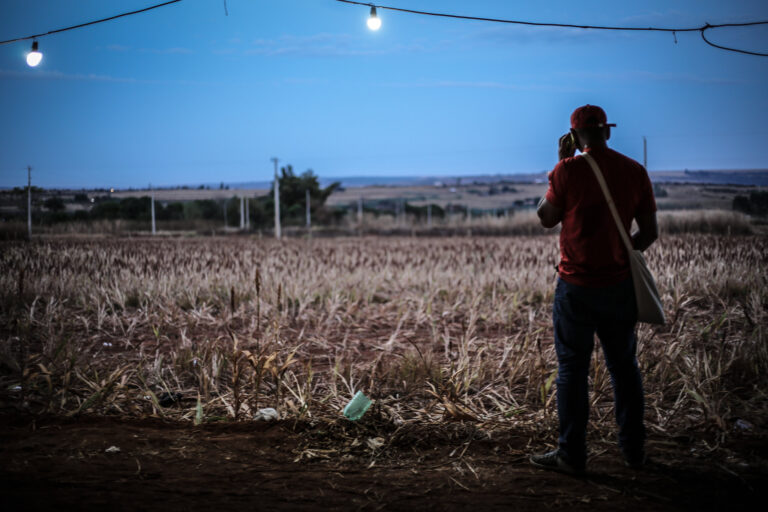A Movement for Justice: The Landless Workers’ Movement in Brazil
Originating from the struggles of rural workers and progressive clerics within the Catholic Church, the Landless Workers’ Movement (MST) pursues equitable land distribution, agrarian reform, and sustainable agricultural practices throughout Brazil. To compel the state’s compliance with its constitutional obligation to redistribute unproductive rural lands, MST strategically occupies these areas. Though, recent legislation passed by Brazil’s lower House on May 21, 2024 threatens to penalize those occupying such lands by denying them access to public benefits related to agrarian reform.
A Green Sanctuary: Comuna da Terra Irmã alberta
On the outskirts of São Paulo lies Comuna da Terra Irmã Alberta—a vibrant community flourishing with green fields and trees—that supports around 65 smallholder farmers who provide organic fruits and vegetables to Brazil’s largest metropolis.
This cooperative was established in 2002 and is named after Alberta Girardi, a dedicated Italian nun renowned for her advocacy for marginalized communities in Brazil. Her efforts spanned nearly fifty years until her passing at age 97 in 2018.
Residents share cherished memories of Sister Alberta. Roseãngela Filomena, a smiling 62-year-old community member with silver hair recalls meeting her through church activities: “She guided me into joining MST and inspired my involvement in land occupation,” she reflects fondly.
The Formation of MST
MST emerged in 1984 as a response from rural workers alongside supportive members of the Catholic faith seeking just land distribution and significant reforms within Brazil’s agricultural sector.
MST activists frequently participate in protests advocating for crucial reforms. Image: luiz Fernando.
With over 1.5 million members today, MST ranks among one of Brazil’s most prominent—and contentious—social movements. Their methods involve occupying neglected farmland considered non-compliant with Article 184 of the Brazilian Constitution established in 1988 that mandates state intervention on unused properties that fail their social function.
A landmark ruling from brazil’s Supreme Federal Court declared these occupations as fundamentally different from typical property crimes aimed at pushing forward necessary agrarian reforms instead.
“The state has an obligation to expropriate any land that does not meet its constitutional role,” explains Sérgio Sauer, a sociology professor at the University of Brasília during an interview with Mongabay news outlet. “Such occupations signify civic resistance compelling governmental action towards meaningful change.”
Fostering Sustainable Futures
The history began on July 21st, when Roseãngela along with around six hundred fellow MST advocates occupied an abandoned eucalyptus farm stretching over approximately120 hectares westward from São Paulo—the site had devolved into taxes owed after being surrendered by its owner northwards toward landfill progress plans set forth by SABESP (the statewide waste management institution).
“Our entry occurred just past midnight,” recalls Roseãngela while seated inside their communal establishment during our chat session about initial escapades across this novel terrain filled only initially with stumps generated through logging practices back then.” Perchance due largely towards clandestine ecclesial sustenance enjoyed too—it garnered local bishop support along facets triggered threats made against us showed unthreatened conditions surrounding this ironically destabilized plot before them subsequently blossomed thereafter,” she shares.” At first my sister Iris found our mission trifling; I cued returning back alongside amid concerns expressed regarding living here concerning raising children brought sleepless nights days afterwards,” she adds proudly noting how Iris eventually reconciled sympathies herself post tragedy endured previously migrating now each happily cohabiting among landscapes greening unexpected heights attained themselves consequently forthwith!”
Over time Irma Albert has evolved initiating education avenues incorporating agroecology workshops directed engaging thought monitoring sustainability initiatives too unlike modern culpability transitioning forcibly elsewhere seem acute bulwark hence lasting productivity captured sustainably!</scru
